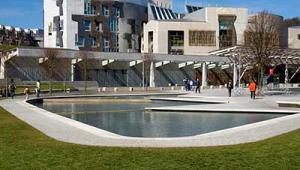The recent vogue for independent budget advice for governments at both national and devolved level has now had its most recent addition with today’s publication in Scotland of the much-awaited Independent Budget Review.
Chaired by Crawford Beveridge, the panel’s report contains a range of recommendations over three broad areas.
Firstly, ensuring that no services are protected by subjecting them to scrutiny and comparative prioritisation including a consideration of whether current universal services should be retained. Secondly, the report identified more than 200 public bodies in Scotland, too many for a country of its size it concludes, which introduces the spectre of reorganisation. Thirdly, the panel identified options on workforce management ranging from a pay freeze to managing down the current public sector workforce by as much as 10%.
The fiscal background to the review, a required reduction of £4.5bn of resources available to Scotland was confirmed by the panel, meaning that talk of budget constraint must now be translated into action. If the report’s recommendations are acted on, high-profile services such as health, education and social care generally will no longer be able to benefit from the political as well as emotional ring-fencing they’ve received in the past.
Universal services that Scots have enjoyed as a result of devolution could also be under threat with free services, such as personal care, student tuition fees and travel for senior citizens, recommended for consideration as to whether they can still be afforded.
Any discussion on the number of public bodies is of course not new and while the panel stepped back from recommending outright reorganisation, there are some clear signals being sent.
Unsurprisingly, Scottish Water is the subject of comment with a clear recommendation that an alternative option to the UK’s only publicly funded water body should be sought. Such a recommendation was widely expected and the mutualisation model used in Wales has attracted the interest of the panel.
Ironically, at a time when the UK coalition government is proposing to introduce a council tax freeze in England & Wales, Scotland’s existing council tax freeze, a flagship SNP policy and which costs some £70m per year, is being recommended for abolition.
For many, the impact on jobs with the recommendation a pay freeze over two years, a freeze on recruitment and significant reduction in the size of the workforce will hit home. Add to this the expected commentary on the sustainability on public sector pensions and there is undoubtedly more downward pressure than there has ever been in Scotland on both the size of the workforce and the remuneration package.
The report concludes somewhat meekly that a radical redesign may be required. The reality, as CIPFA recommended to the panel, is that radical thinking is in fact essential. Yet the panel of three, referred to unfairly as ‘the three wise men’, have however reached one conclusion that could be its most important. It is that there should be a more strategic long-term framework with clear leadership coming from the Scottish Parliament and with a move towards a more outcomes-based approach.
Now it is over to Scottish ministers to translate the recommendations into action with the knowledge that the difficult recommendations, if implemented, have come from ‘someone else’.
Don Peebles is policy and technical manager at CIPFA Scotland











